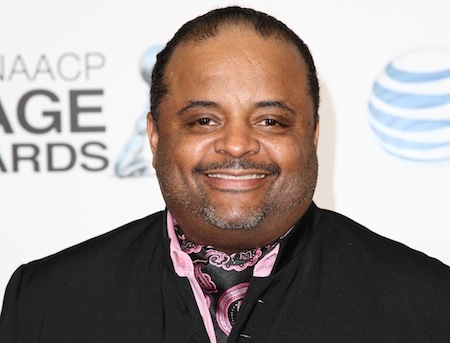Roland Martin: Sterling Story Can Prompt Larger Conversation

The smarter way to stay on top of broadcasting and cable industry. Sign up below
You are now subscribed
Your newsletter sign-up was successful
Roland Martin, host of News One Now, on African American-targeted cable net TV One, as well as a syndicated radio show, says he was not surprised that broadcast as well as cable news outlets went live with last week's press conference by NBA Commissioner Adam Silver.
Silver was announcing the lifetime ban and fine of Los Angeles Clippers Owner Donald Sterling over racist comments first reported by TMZ.
Martin talked with B&C Washington bureau chief John Eggerton about why he expected the press' full court press, and how the story could prompt a larger conversation about race. An edited transcript follows.
What was your audience's reaction to Adam Silver's announcement of the lifetime ban and fine?
I did not get a single person who felt that Silver should have been tougher. They thought that he was strong, decisive and clearly understood the pressure of the moment and how he needed to really heed the call of these players. Billy Martin said he has known Silver for a couple of decades and he was very impressed with how he handled it.
Were you surprised that so many news outlets, broadcasting as well as cable, went live with the press conference?
No shock at all. This is one of those stories that resonates across the board because it went beyond a sports story. It was a combination of a sports story, it was a sex story, and it was a race story. It was an economic story, it was a power story. It was all of that combined. I think that is why it went to another level and why you had that type of media response to it.
The smarter way to stay on top of broadcasting and cable industry. Sign up below
What other conversations should this country have about race that this could spur?
We were just talking about that. Let me tell you what our plans are.
So what happens with these kinds of stories is that Silver makes his announcement, you have coverage today, you might have coverage tomorrow, and obviously folks are going to be looking for the NBA board of governors to meet to vote to strip him of his franchise. But what I am trying to do with the story is move my audience in a different way. What we did today was we have athletes on who talked about how we take this moment and turn it into a movement. Are we going to see them become active on other social justice issues now that they have been empowered because of this?
How do you do that?
So, I want to say to my audience: 'OK, so many of you were outraged and had lots to say about Donald Sterling and what took place, but, a month ago the Wall Street Journal talked about the fact that black-owned businesses only got 1.7% of $20 billion in loans last year, or $385 million bucks. Well, guess what, that is about half of what Sterling's franchise is worth.' So, Al Sharpton and the NAACP are going to be meeting with Adam Silver. Well, that's fine, but the question we should be asking is: 'Are they going to meet with the CEO of Bank America or Wells Fargo.'
This is one of those ways that, if you want to talk about systemic racism and institutional racism and the barriers that go up, there is a way to link it with these other issues that can cause someone to say, “whoa, I never thought about it.”
Here I am angry at what is going on and saying 'yeah, get him out of the NBA,' when what I should be saying is: 'Why in the hell we are only getting loans in the amount of half the value of his franchise.'
So, we are actively looking at moving the story beyond sports to keep the audience engaged to tackle those issues.
